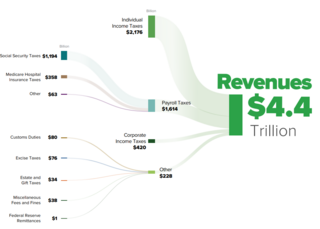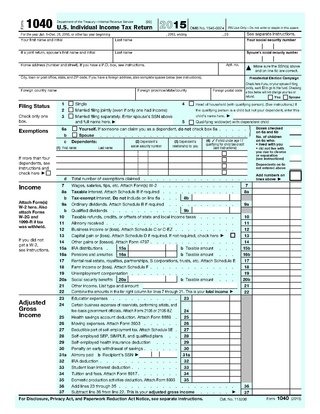
The United States has separate federal, state, and local governments with taxes imposed at each of these levels. Taxes are levied on income, payroll, property, sales, capital gains, dividends, imports, estates and gifts, as well as various fees. In 2020, taxes collected by federal, state, and local governments amounted to 25.5% of GDP, below the OECD average of 33.5% of GDP.

Mecklenburg County is a county in the Commonwealth of Virginia. As of the 2020 census, the population was 30,319. Its county seat is Boydton.

Proposition 13 is an amendment of the Constitution of California enacted during 1978, by means of the initiative process. The initiative was approved by California voters on June 6, 1978 by a nearly two to one margin. It was upheld as constitutional by the United States Supreme Court in the case of Nordlinger v. Hahn, 505 U.S. 1 (1992). Proposition 13 is embodied in Article XIII A of the Constitution of the State of California.
The Canada Revenue Agency is the revenue service of the Canadian federal government, and most provincial and territorial governments. The CRA collects taxes, administers tax law and policy, and delivers benefit programs and tax credits. Legislation administered by the CRA includes the Income Tax Act, parts of the Excise Tax Act, and parts of laws relating to the Canada Pension Plan, employment insurance (EI), tariffs and duties. The agency also oversees the registration of charities in Canada, and enforces much of the country's tax laws.
The Australian Taxation Office (ATO) is an Australian statutory agency and the principal revenue collection body for the Australian Government. The ATO has responsibility for administering the Australian federal taxation system, superannuation legislation, and other associated matters. Responsibility for the operations of the ATO are within the portfolio of the Treasurer of Australia and the Treasury.

The United States Tax Court is a federal trial court of record established by Congress under Article I of the U.S. Constitution, section 8 of which provides that the Congress has the power to "constitute Tribunals inferior to the supreme Court". The Tax Court specializes in adjudicating disputes over federal income tax, generally prior to the time at which formal tax assessments are made by the Internal Revenue Service.

The United States federal government and most state governments impose an income tax. They are determined by applying a tax rate, which may increase as income increases, to taxable income, which is the total income less allowable deductions. Income is broadly defined. Individuals and corporations are directly taxable, and estates and trusts may be taxable on undistributed income. Partnerships are not taxed, but their partners are taxed on their shares of partnership income. Residents and citizens are taxed on worldwide income, while nonresidents are taxed only on income within the jurisdiction. Several types of credits reduce tax, and some types of credits may exceed tax before credits. Most business expenses are deductible. Individuals may deduct certain personal expenses, including home mortgage interest, state taxes, contributions to charity, and some other items. Some deductions are subject to limits, and an Alternative Minimum Tax (AMT) applies at the federal and some state levels.

The Internal Revenue Service Restructuring and Reform Act of 1998, also known as Taxpayer Bill of Rights III, resulted from hearings held by the United States Congress in 1996 and 1997. The Act included numerous amendments to the Internal Revenue Code of 1986. The bill was passed in the Senate unanimously, and was seen as a major reform of the Internal Revenue Service.
Tax protesters in the United States have advanced a number of arguments asserting that the assessment and collection of the federal income tax violates statutes enacted by the United States Congress and signed into law by the President. Such arguments generally claim that certain statutes fail to create a duty to pay taxes, that such statutes do not impose the income tax on wages or other types of income claimed by the tax protesters, or that provisions within a given statute exempt the tax protesters from a duty to pay.

The National Tax Agency is the official tax collecting agency of Japan. As of October 2018, the Commissioner of NTA is Takeshi Fujii.

The Bureau of Internal Revenue(Filipino: Kawanihan ng Rentas Internas, or BIR) is a revenue service for the Philippine government, which is responsible for collecting more than half of the total tax revenues of the government. It is an agency of the Department of Finance and it is led by a Commissioner.

The Georgia Department of Revenue (GDOR) is the principal tax collection agency in the U.S. state of Georgia. The Department administers tax laws and enforces laws and regulations concerning alcohol and tobacco products in the state. The Georgia Department of Revenue is headquartered in Atlanta, Georgia
A tax protester is someone who refuses to pay a tax claiming that the tax laws are unconstitutional or otherwise invalid. Tax protesters are different from tax resisters, who refuse to pay taxes as a protest against a government or its policies, or a moral opposition to taxation in general, not out of a belief that the tax law itself is invalid. The United States has a large and organized culture of people who espouse such theories. Tax protesters also exist in other countries.

The Internal Revenue Service (IRS) is the revenue service for the United States federal government, which is responsible for collecting U.S. federal taxes and administering the Internal Revenue Code, the main body of the federal statutory tax law. It is an agency of the Department of the Treasury and led by the Commissioner of Internal Revenue, who is appointed to a five-year term by the President of the United States. The duties of the IRS include providing tax assistance to taxpayers; pursuing and resolving instances of erroneous or fraudulent tax filings; and overseeing various benefits programs, including the Affordable Care Act.
Taxes in Germany are levied by the federal government, the states (Länder) as well as the municipalities (Städte/Gemeinden). Many direct and indirect taxes exist in Germany; income tax and VAT are the most significant.
The Missouri Department of Revenue is a U.S. state government agency in Missouri created under the Missouri Constitution in 1945, which is responsible for ensuring the proper functioning of state and local government through the collection and distribution of state revenue, and administration of state laws governing driver licensing, and motor vehicle sale and registration. Mount Etna Morris served as the department's first director from July 1946 until his election as State Treasurer of Missouri in November 1948, and later served again as director from 1953 to 1956. The current director, Wayne Wallingford, was named by Governor Mike Parson on December 29, 2021.

The Ghana Revenue Authority (GRA) is the Ghana administration charged with the task of assessing, collecting and accounting for tax revenue in Ghana.

The government of Richmond, Virginia, headquartered at Richmond City Hall in Downtown Richmond, is organized under the Charter of Richmond, Virginia and provides for a "strong" mayor-council system. The mayor is elected to a four-year term and is responsible for the administration of city government. The Richmond City Council is a unicameral body consisting of nine members, each elected to represent a geographic district. The city of Richmond is located in the 13th Judicial Circuit of Virginia, and its court system consists of a circuit court and four district courts.

The Land Tax Act 1910(Cth) and the related Land Tax Assessment Act 1910(Cth) were Acts of the Parliament of Australia which imposed a progressive land tax on the unimproved value of land. They were enacted in November 1910 by the Fisher Labour Government intent on breaking up a number of very large holdings of underutilised, arable land that was secured during the colonial period.
The North Carolina Department of Revenue was created in 1921 by the North Carolina General Assembly. The department is headed by a Secretary that is appointed by the Governor. The secretary is a member of the North Carolina Cabinet. Currently, the department is responsible for administering the collection of the North Carolina state income tax, gasoline tax, sales tax, beverage tax, and inheritance tax.












